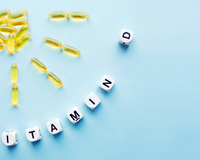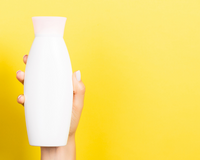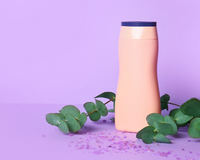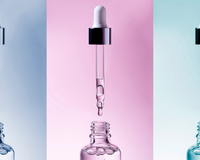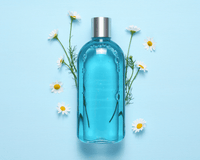Natural black hair care products review, many women have chosen to embrace their natural kinks, curls, coils, and waves by going natural. Going natural is not a trend or a phase; it is a lifestyle (and an adventure!) that demands additional time, patience, and a tiny learning curve when it comes to selecting goods and products. Continue reading for professional advice and the best natural hair products to add to your routine.
"My hair was in desperate need of a clarifying shampoo, so I went on the hunt. I was going to buy another one, but because I'm not an expert, I asked the Ulta girl for her advice. She suggested this one for natural hair because it's what her hairdresser uses on her own natural hair. I was skeptical because of the price, but OMG, I'm so glad I tried it. It smells nice, lathers up nicely, and left my hair feeling clean but not stripped. I followed up with a hydrating wash, conditioned, then deep conditioned my hair, as instructed. I won't use it every week; instead, I'll use it as needed, but it's now a part of my hair arsenal.", one reviewer said.
This styling gel contains aloe and honey, which assist to achieve shape, definition, and a firm hold while still allowing hair to feel soft to the touch. It also contains all natural and organic elements to preserve strands and give shine. "This is without a doubt my new go-to gel for styling my hair and coordinating with the rest of my products. During the quarantine time, I was exposed to this product by a stylist who created how-to videos. Thankful for this product's information, "remarked a customer.
Natural Black Hair Care Products Review After Using Within A Routine
What function does your scalp play in keeping your hair healthy and natural? The importance of scalp health in obtaining and keeping healthy hair cannot be overstated. It's vital to have a nutrient-rich foundation (aka your scalp), and when that foundation is blocked by dead skin, oil, perspiration, or product accumulation, it may become a breeding ground for germs, not to mention affect the quality and development of your hair (more on that in a bit). Oil, also known as sebum, is produced naturally in your hair by sebaceous glands in the epidermis of your scalp. Sebum keeps your skin hydrated and protects it from infection.
If you sweat a lot, exercise frequently, or live in a crowded environment, hair specialists prescribe this. They also advise against using too many products at once, instead opting for a basic shampoo, conditioner, and go-to style product. More pro advice: use plant-based gel for a "wash and go," and styling foam for braids and twist-outs since it provides for a flexible grip for manipulation-based styles.
Is it important to have a haircare routine? An irritable scalp can also be caused by product sensitivities or not cleaning your hair well enough, so choosing the proper products and sticking to a schedule is essential. Do you spend a lot of time and money on your skincare routine, making sure your skin gets the attention it needs, but neglect your hair? Treat your scalp as though it were an extension of your face's skin. Just like your face, you should wash, exfoliate, and moisturize your scalp.
How To Use Natural Black Hair Care Products?
The greatest thing you can do is figure out what works best for your scalp and treat your hair gently. Use warm water and an alcohol- and sulfate-free shampoo to gently cleanse your scalp. What is the significance of this? Sulfates can deplete the scalp's natural oils, causing it to become dry and irritated. Consider giving yourself a regular scalp massage to help disperse natural oils evenly. Remember that your hair needs water to be hydrated, so take out the spray bottle and spritz those locks.
Embracing and learning to care for your natural hair is a personal and meaningful experience that helps many women and men to love themselves and share that love with the world.
However, you might have an overabundance or underabundance of sebum, which can lead to an unhealthy scalp. Plus, filth and excess oil surrounding the follicular opening (where your hair grows out of) can plug the follicle and suffocate the hair root, resulting in folliculitis. Folliculitis is an infection of the hair follicles that causes shedding, shedding, and hair loss.
Those with natural hair should avoid heavy oils, contrary to common opinion, because oils weigh down and coat the hair shaft, repelling water on wash days. You should also avoid deep conditioning on a weekly basis, utilizing it solely as a "problem fixer" when your hair is too dry. On that topic, avoid the homemade conditioning concoctions you whip up in the kitchen, as food has a molecular weight that your hair cannot break down because it lacks saliva and enzymes to breakdown it, much like your mouth.
Wash Your Hair On A Schedule
Water is an important must when it comes to your dark hair. Water is one of the most important aspects of maintaining healthy natural hair. It is advised that you consume eight glasses of water every day and apply water to your hair on a regular basis.
When detangling your hair, one of the ways you might utilize water is during the detangling process. Naturally, kinky hair is more prone to knots and tangles due to its curly texture. Trying to comb through dry, knotted hair will almost certainly result in a strange headache and hair damage. To make detangling your hair simpler, do it when it's still damp or while standing under a showerhead. Having a water spray bottle handy is also beneficial.
The main benefit of having afro hair is that you don't have to wash it as frequently as other hair varieties. To avoid dryness and frizziness, you should wash your hair weekly or every two weeks. This may be accomplished by establishing a wash-day regimen. To revitalize your afro curls, utilize a moisture-boosting shampoo and conditioner in your wash day regimen. When washing your hair, avoid using hot water since it dries out your hair and loses moisture. Instead, carefully wash your hair with warm water.


